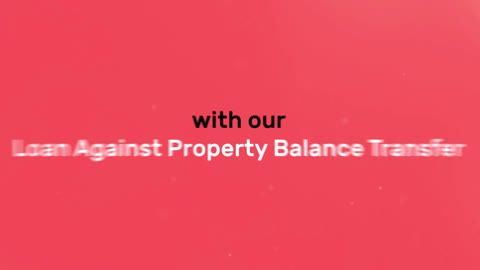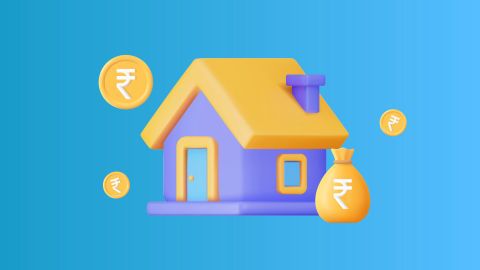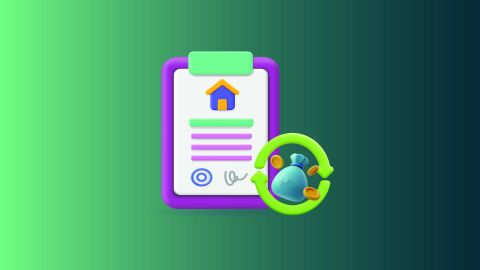A loan for the unemployed, often called an unemployed loan, is designed for individuals without steady employment, those in unreliable jobs, or people with irregular income sources. These loans may come with different terms, interest rates, and conditions compared to regular loans. People with uncertain or inconsistent income may still qualify for such financial assistance under specific eligibility criteria. These loans are offered in various forms, including personal loans, secured loans, and government-backed loans.
Step by step process for loan for unemployed
The general notion is that you need a regular source of income to avail loan. Financial institutions, however, offer unemployed loans to people with low to no income. The government also provides financial assistance to educated, unemployed youths through various schemes.
Check out how people with no income can avail a loan
1. Secured loans
Individuals without a steady source of income can get a secured loan if they own a property. When availing this loan for unemployed, the loan to value is not as high as that offered to people with a steady income source. However, they can avail considerable financing if the market value of the mortgaged property is high.
Bajaj Finserv offers secured loan in the form of loan against property with attractive features and benefits. Mortgage your residential or commercial property to avail this loan at competitive interest rates along with a flexible repayment tenure.
Use the Property Loan EMI calculator to manage your finances effectively during the loan tenure. Bajaj Finserv also brings various types of mortgage loan to suit your specific financial requirements.
Other options for secured loans include loans against fixed deposit, gold loans, etc.
2. Secured personal loans
People with no stable source of income but a high credit score can also opt for a secured personal loan for unemployed. A good credit history with timely repayments and zero defaults can fetch you a personal loan up to a specific amount.
3. Loans through government schemes
The Central Government also comes with various loan schemes that provide educated, unemployed youths with loans.
Two of them are –
- Pradhan Mantri Rozgar Yojana
Individuals who passed the 8th Standard can avail collateral-free credits of up to Rs. 1 Lakh under this scheme on meeting other basic eligibilities.
- Pradhan Mantri Mudra Yojana for women
Avail loans to start new ventures under this scheme specially designed to empower women with no income.
Opt for one of these options to avail credit even without a stable income source. Bajaj Finserv offers hassle-free application procedure with its secured loans. Check out how to apply for a Property Loan and easily gain approval within 72 hours*.
Types of unemployed loans
1. Loans Against Fixed Deposits (FDs)
A fixed deposit can serve as valuable collateral if you lack a steady income. You can borrow up to 60%–80% of your FD’s value, while it continues to earn interest. Since the FD secures the loan, proof of reliable income isn’t necessary.
2. Gold loans
For quick access to funds, an unemployed individual can opt for a gold loan. The process is simple and requires minimal paperwork. By pledging gold as collateral, you can secure a loan at competitive interest rates.
3. Secured loans
In secured loans, you pledge an asset as collateral, and the loan amount depends on the asset’s value. This option is ideal if you own property or valuable assets that can be used as security.
4. Payday loans
If you expect to be employed soon, payday loans may be an option. Lenders extend these short-term loans based on the expectation of your future income and employment stability.
Government loan programs in India for unemployed
In India, several government loan schemes are designed to support unemployed individuals by promoting self-employment, entrepreneurship, and skill development. These programs provide financial assistance at subsidised interest rates, often with flexible repayment options, to help people generate sustainable livelihoods.
One prominent scheme is the Prime Minister’s Rozgar Yojana (PMRY), which extends loans to unemployed youth for starting small businesses. The Pradhan Mantri Mudra Yojana (PMMY) also offers loans under Shishu, Kishor, and Tarun categories, supporting micro and small enterprises. For those from marginalised communities, organisations like the National Scheduled Castes Finance and Development Corporation (NSFDC) and National Backward Classes Finance and Development Corporation (NBCFDC) provide concessional education and self-employment loans.
Additionally, skill development initiatives are linked with financing options to empower individuals with both training and funds. These government-backed loans encourage entrepreneurship, improve employability, and offer unemployed individuals a chance to build financial independence.
Eligibility for unemployed loan
Banks generally require applicants to provide standard documents such as proof of identity, age, address, and income, along with business registration details and relevant financial records.
1. Regular income
While proving a steady income can be challenging for unemployed individuals, it is not always a barrier. If you can show reliable income from alternative sources and maintain a good credit record, lenders may still consider your application.
2. Credit history
Lenders carefully review your credit history to assess repayment behavior. They check for timely payments, past defaults, or any negative remarks that might impact loan eligibility.
3. Credit score
A credit score, commonly referred to as a CIBIL score, plays a key role in loan approval. A strong score significantly improves your chances of approval, as it reflects financial discipline and creditworthiness.
Documents required for unemployment loan
Applying for an unemployment loan requires submitting certain documents that help lenders verify your identity, financial background, and repayment capacity. The documentation may vary slightly between banks and NBFCs, but some requirements are common.
Firstly, applicants need to provide proof of identity such as an Aadhaar card, PAN card, voter ID, or passport. Proof of age and address documents like a driving license, utility bills, or rental agreement are also mandatory. In cases where borrowers have an alternative source of income, lenders may request bank statements, investment records, pension statements, or rental income proof. A valid photograph and completed loan application form are essential.
How can you get a loan without income proof?
Getting a loan without income proof can be challenging, but not impossible. Lenders usually assess income stability to determine repayment capacity. However, individuals without a regular salary slip or income certificate can still access credit through alternative options. One way is by opting for a secured loan, such as a gold loan, loan against fixed deposits (FDs), property, or insurance policies. Since these loans are backed by collateral, lenders are more flexible with documentation. Another option is to showcase alternative income sources, like rental income, pension, freelance earnings, or investment returns, supported by bank statements.
Benefits of having unemployed loan
- Financial support during crisis – Provides immediate access to funds for essential needs when there is no regular income source.
- Covers education and skill development – Can be used for higher studies, vocational training, or skill enhancement courses to improve employability.
- Encourages entrepreneurship – Enables individuals to start small businesses or self-employment ventures by providing the required capital.
- Flexible loan options – Available in various forms such as personal loans, secured loans, gold loans, or government-backed schemes.
- Collateral-based accessibility – Loans against assets like gold, fixed deposits, or property make borrowing possible without income proof.
- Improves credit history – Timely repayment helps build or strengthen credit scores, enhancing future loan eligibility.
- Tax benefits in some cases – Certain education or skill-development loans also qualify for tax deductions under the Income Tax Act.
- Restores financial independence – Helps unemployed individuals manage expenses and regain confidence while seeking stable income opportunities.








